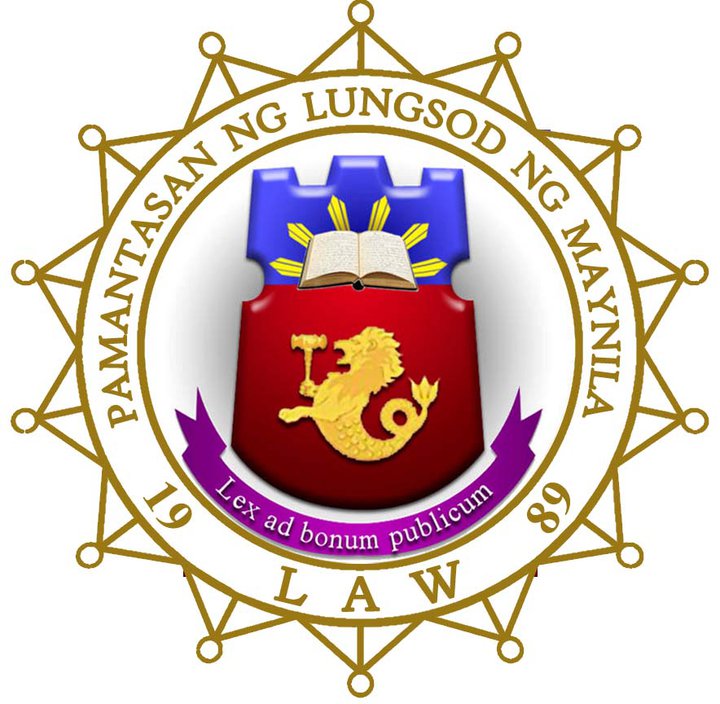
 History
History
The College of Law formally opened its doors in the School Year 1989-1990. The Board of Regents Resolution No. 1329 dated 18 April 1989 authorized the establishment of a College of Law in the University and approved a curriculum for the first year level. On 02 April 1990, the Board of Regents approved the curriculum for the second to fourth year levels based on DECS Order No. 27, s. 1989 (Standard Law Curriculum). The creation of the College of Law was a testament to the social justice orientation of the capital City’s premiere University. The first dean of the College was Serafin V.C. Guingona, member of the Constitutional Commission, who was later appointed as Associate Justice of the Court of Appeals. He was succeeded by Raul I. Goco who relinquished the position after his appointment as Solicitor-General, later serving as the Philippine Ambassador to Canada. Then Vice-Dean Angel P. Aguirre, Jr., City Legal Officer of Manila, assumed the deanship in an acting capacity. Ernesto L. Pineda, who was later appointed as Undersecretary of the Department of Justice, became the next Dean. Thereafter, Jose M. Roy III, former Chief of Staff of Supreme Court Chief Justice Andres R. Narvasa, was appointed. Dean Roy served as Commissioner and Executive Director of the Preparatory Commission on Constitutional Reforms.
“The People’s Law School,” under current Dean, Ernesto P. Maceda Jr., former Vice-Mayor and City Councilor of Manila, instituted several measures designed to strengthen the public service thrust of the institution. The PLM-CLLIP (PLM–College of Law Legal Internship Program) requires all law students who have finished at least two years of the law curriculum to complete a 240-hour internship with the legal departments of government agencies. Notable public servants holding high positions in government were invited to participate at the institutionalized Deans’ Lecture Series. Legal Aid collaborations with Commission on Human Rights, the Department of Justice and other law schools garnished the list of the College’s public assistance endeavors.
The Law Library was expanded to accommodate not only the increasing number of students but also the legal research technology and the book collection. Avenues were set to pave the way for productive collaboration thru discussion and dissertation of legal issues between the students and the faculty by way of debates and preparation and distribution of college newsletters. The College hosted a Red Cross International Humanitarian Law Moot Court Competition. Efforts to make the Bar Operations systemic to the College are made to improve the quality of the assistance extended by the resident students to their graduates taking the Bar Examinations.
On 15 May 2009, the Board of Regents issued Board Resolution No. 3179 approving the Juris Doctor curriculum to replace the Bachelor of Laws curriculum. In 2013, the College of Law will be graduating its first batch of Doctor of Laws degree holders.
The PLM College of Law has consistently placed in the top ten most outstanding law schools. In January of 2010, Dean Maceda received the recognition from the Commission on Higher Education relating to the impressive performance of the College. In the Bar Exams of 2012 with its challenging
17.76% national passing average, PLM placed a high 4th rank
among Metro Manila Law schools.
The newly constructed College of Law Moot Court houses the gallery of photos of the Deans who acted as stewards of the College for a span of 2 decades. These deans shaped the College of Law into what it is today. The distinguished names in the Roster of Faculty likewise molded the graduates whose names, in turn, are now contained in the PLM Roll of Attorneys created on 27 April 2010.
On the 20th Anniversary of the College of Law, Dean Ernesto P. Maceda Jr. unveiled the first College of Law Seal and Motto.
Mission
Guided by the Life Purpose and inspired by the vision, we
commit ourselves to wit:
1. To motivate and develop competent, productive, and ethical
professionals, leaders, and citizens of/in Manila.
2. To conduct and sustain relevant, innovative researches
and extension services for the enrichment of scholarship
and community development.
3. To develop and maintain a corps of competent, committed
and ethical administrators, faculty and service personnel
for the efficient and effective delivery of quality academic
and administrative services.
4. To provide, improve and maintain adequate and functional
infrastructures supportive of and conducive to quality education.
5. To promote and maintain mutually beneficial linkages and
networks with institutions and agencies at the local and
international levels.
6. To engender and enhance the goodwill and support of
alumni, friends, and other publics for a viable and sustainable
university.
Vision
The general law program hopes to provide men and women
with high legal education at the least possible cost, preparing
them for the practice of law: that is geared towards public
service and social justice. Towards this end, the law program
is designed:
1. To train the students to have a clear grasp of the law.
2. To develop the student's ability to think logically, methodically,
and to express himself clearly and forcefully.
3. To train the students for leadership in various spheres of
public service.
4. To contribute to the development of Philippine jurisprudence
and legal literature.
The College of Law maintains a scholarship program catering
primarily to needy but deserving and qualified residents of
the City of Manila.
Towards this end, courses are designed to cater the needs
of the law students geared ultimately to the needs of the city
of Manila.
Specifically, the College of Law performs the following:
1. Develops a law program aimed to promote social justice
and improve the delivery of public services in the city of Manila.
2. Maintains linkages with other law schools to upgrade and
improve the quality of legal education in the country.
3. Supports faculty development programs and research activities.
